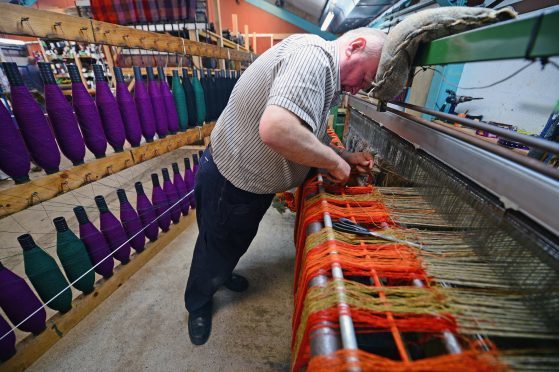It was originally worn by island crofters to keep out the weather – but has in recent years graduated to the catwalks of Paris and Milan.
And now, a small Harris Tweed mill is bridging the gap between the Hebrides and the fashion world with a new material that gives the best of both worlds.
In the village of Garenin, on the west side of Lewis, 30 local weavers are for the first time producing a tweed with a twist to create a softer, ultra light weight fabric which retains the resilience of the original tweed.
For 125 years, The Carloway Mill has been producing Harris Tweed, a fabric protected by an Act of Parliament and an Orb trademark which is renowned around the world for its durability and excellence.
Originally produced by islanders for their own personal use this cloth has since been used around the globe to produce clothes and accessories; more recently it has been used in upholstery as the hard wearing fabric not only looks good on furniture but is long lasting.
In line with the other two remaining Harris Tweed mills on the island there are currently two types of tweed produced – the standard called ‘Classic’ and a second ultra lightweight range called ‘Blackhouses’.
However, the weavers have more recently been able to produce an even lighter as well as softer fabric. The new ‘Premium’ tweed comes in double width. As with all Carloway products there is a bespoke service with tweeds being created to specific orders for colour and design.
Bosses say it is something the fashion industry has been requesting for some time.
CEO of Carloway Mill Derek Reid sa: “We feel that we have really made a breakthrough in creating a product for which the fashion industry has been asking for many years. We are already in discussions with several fashion houses who seems very interested in the Premium Harris Tweed”.
Until the middle of the 19th century, Harris Tweed was only produced for personal use within the local market. It was not until between 1903 and 1906 that the tweed-making industry in Lewis significantly expanded.
Harris Tweed has survived because of its distinctive quality and the fact that it is protected by an Act of Parliament limiting the use of the Orb trademark to hand woven tweeds made in the Outer Hebrides of Scotland.
